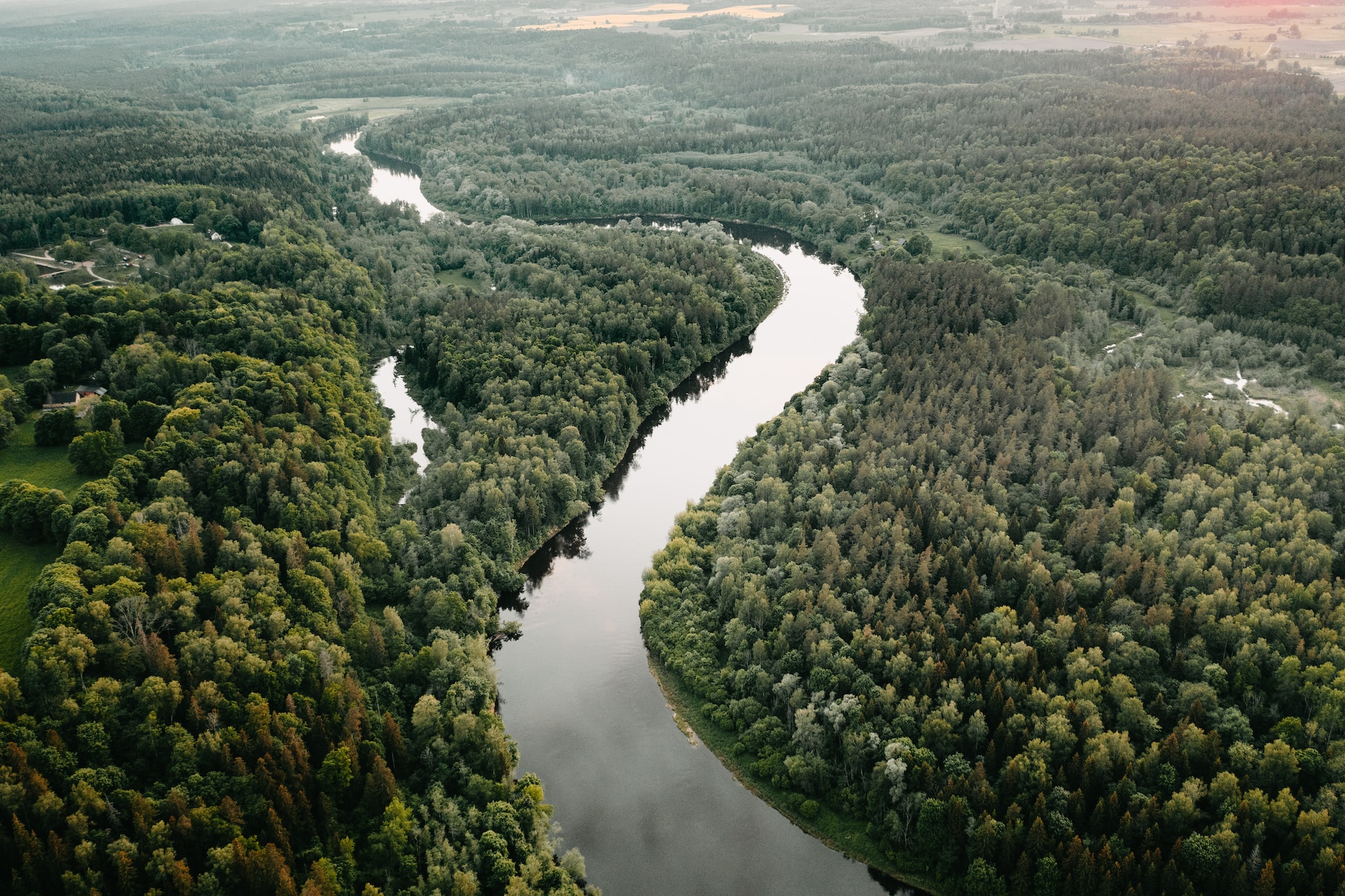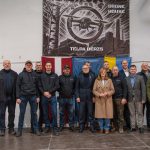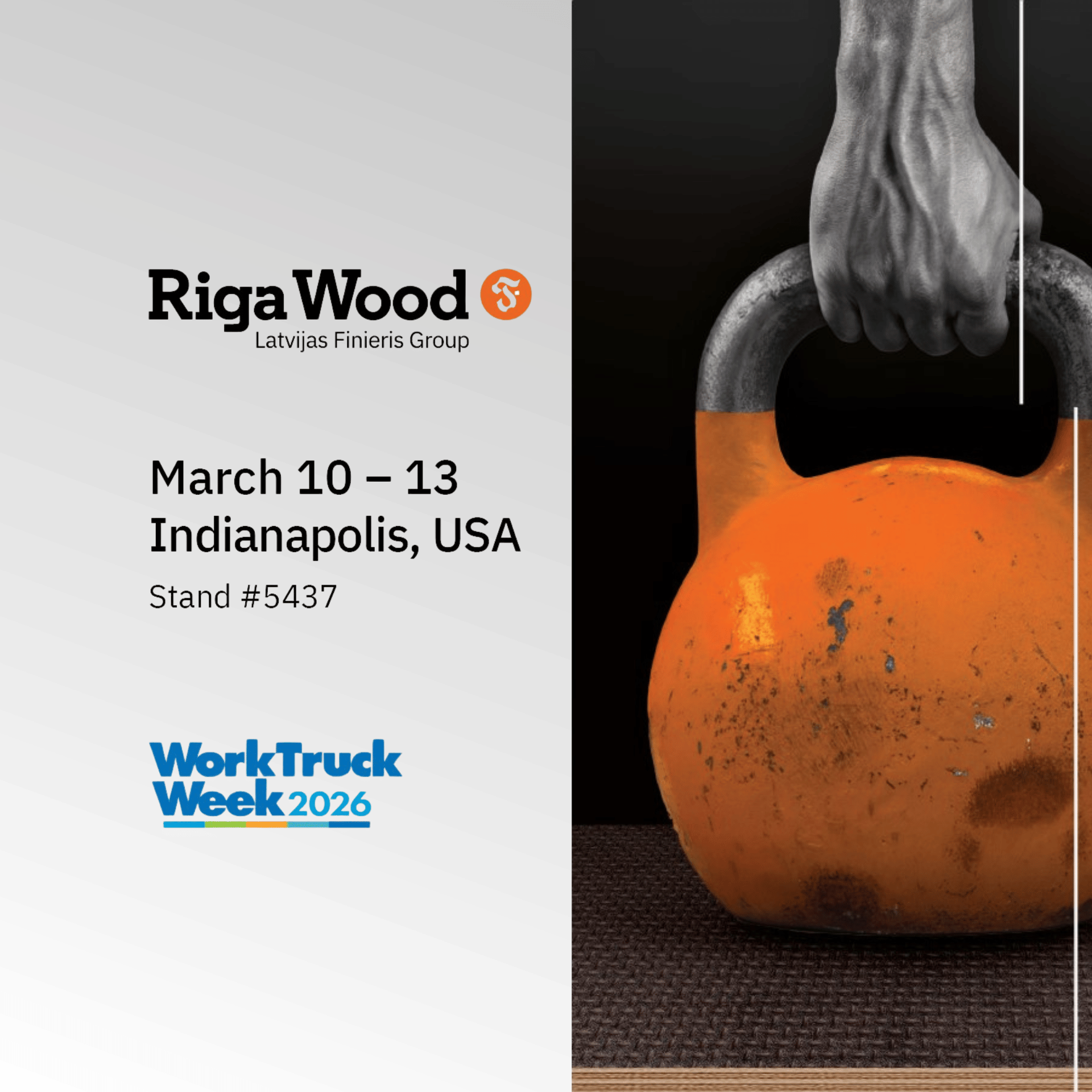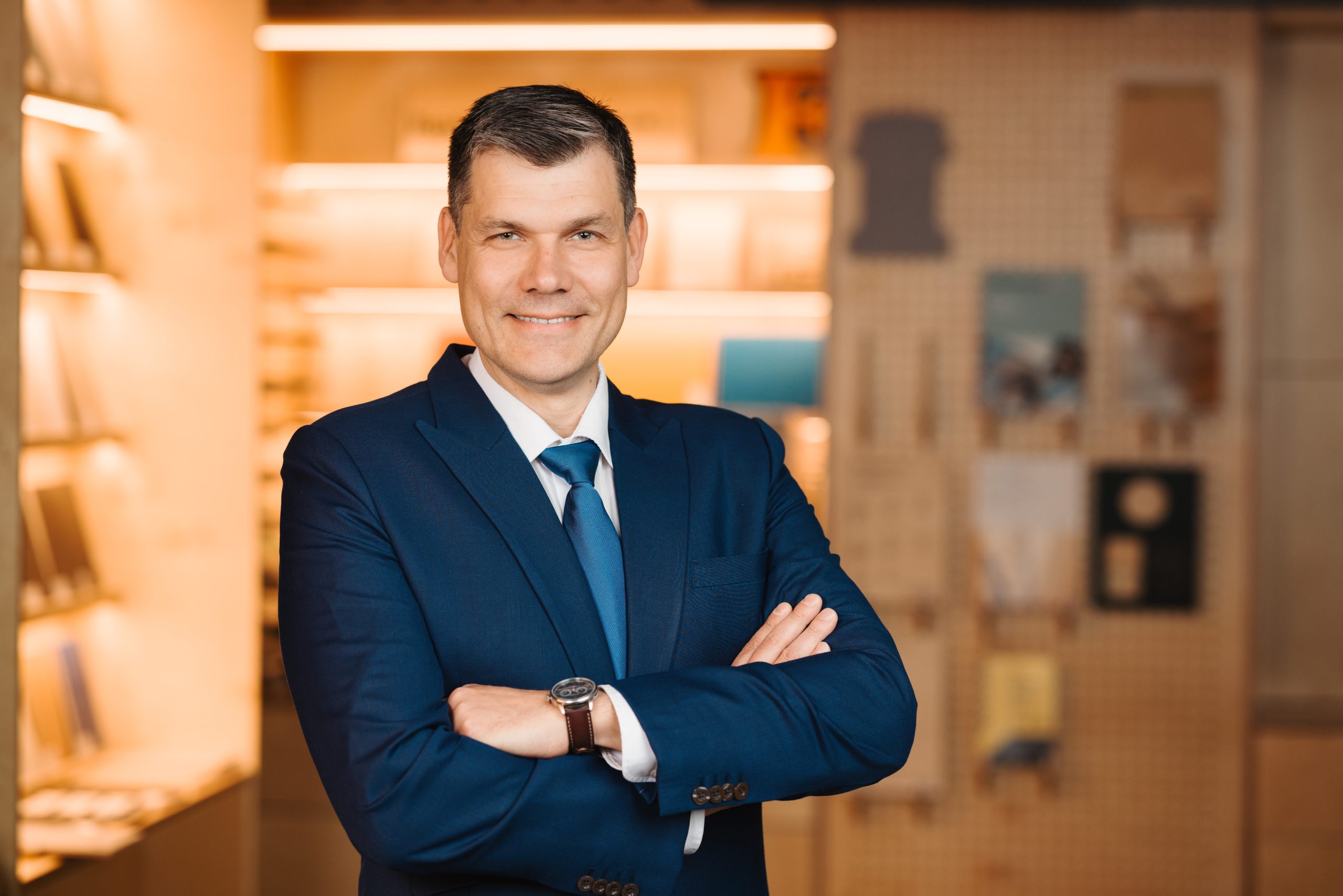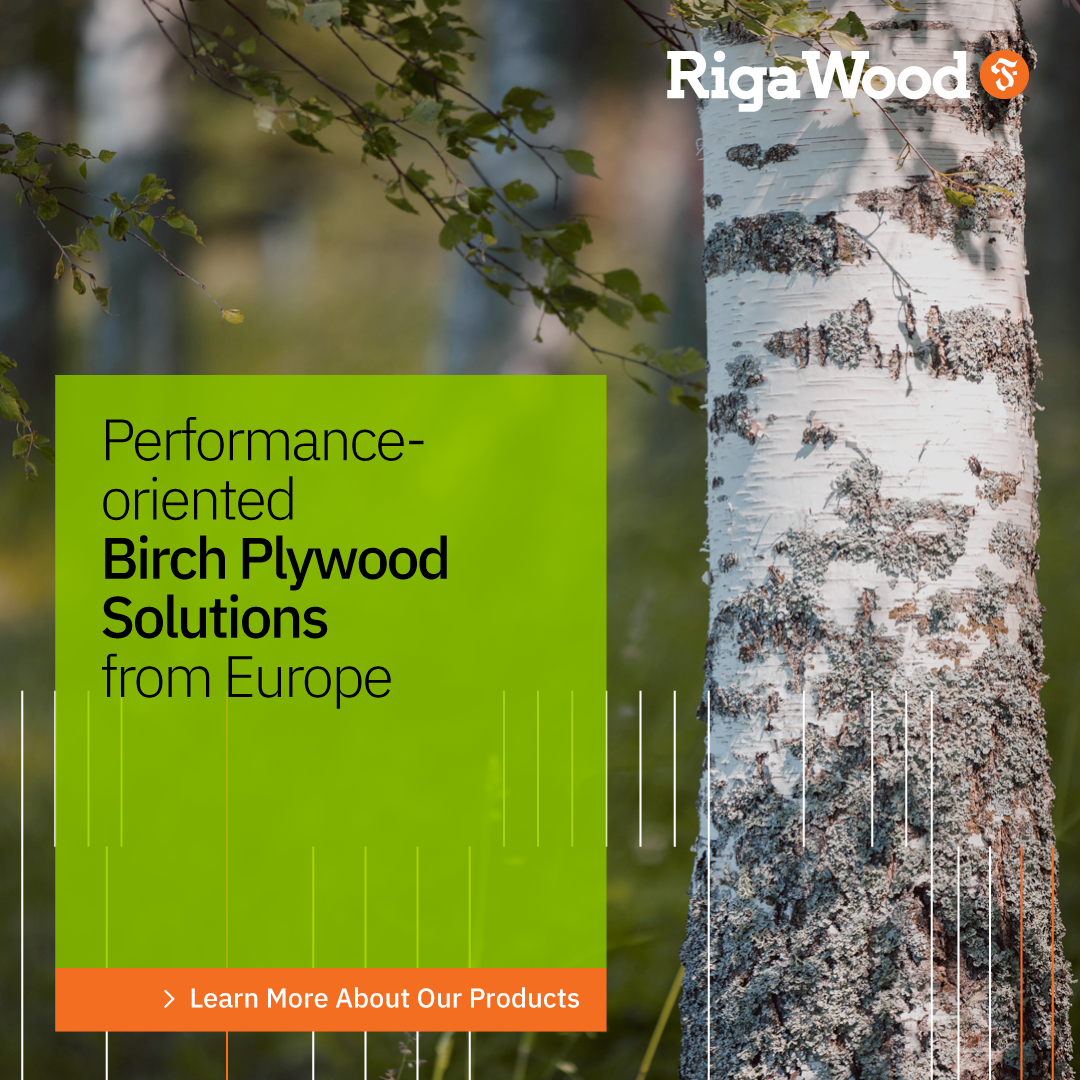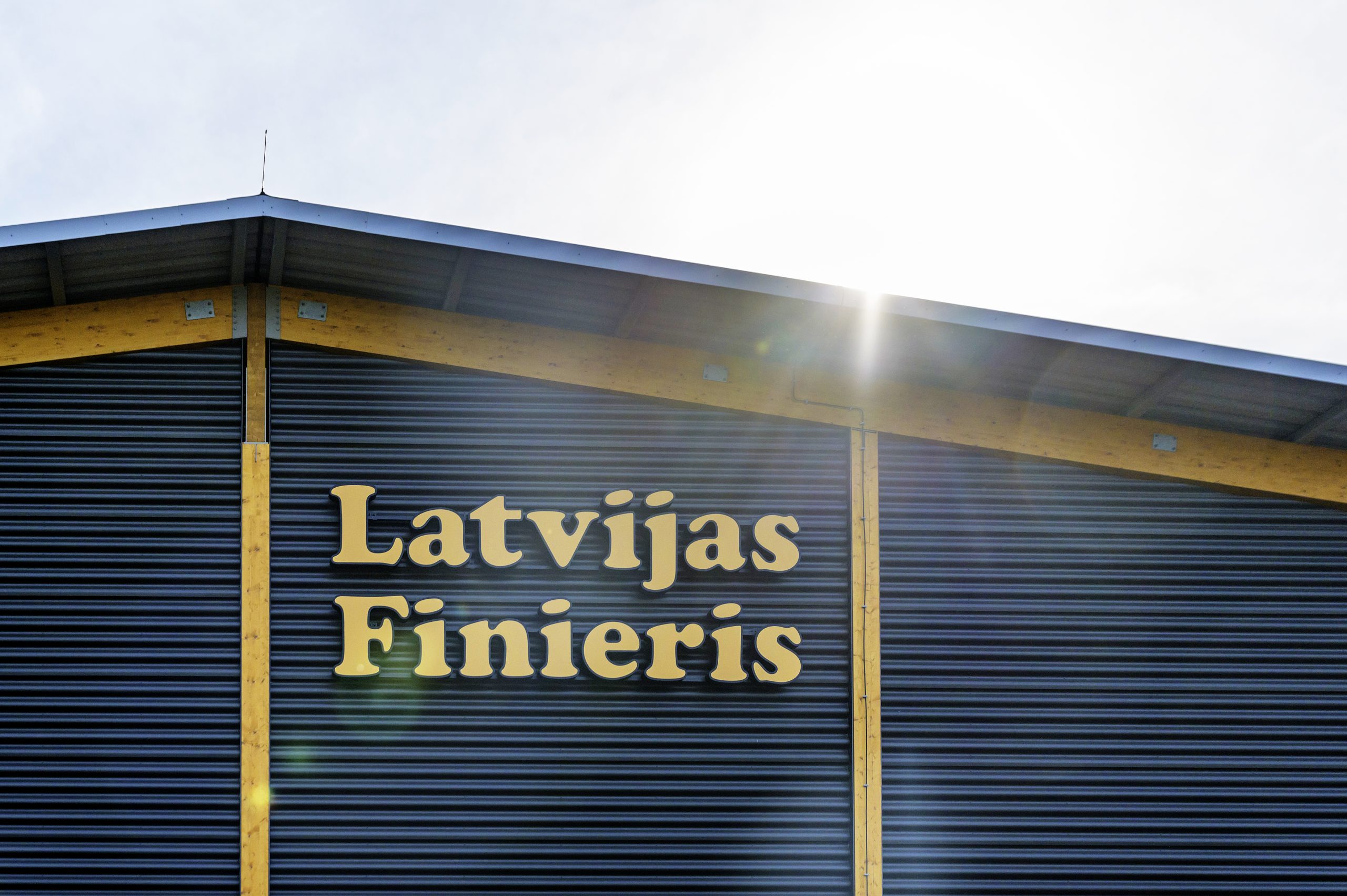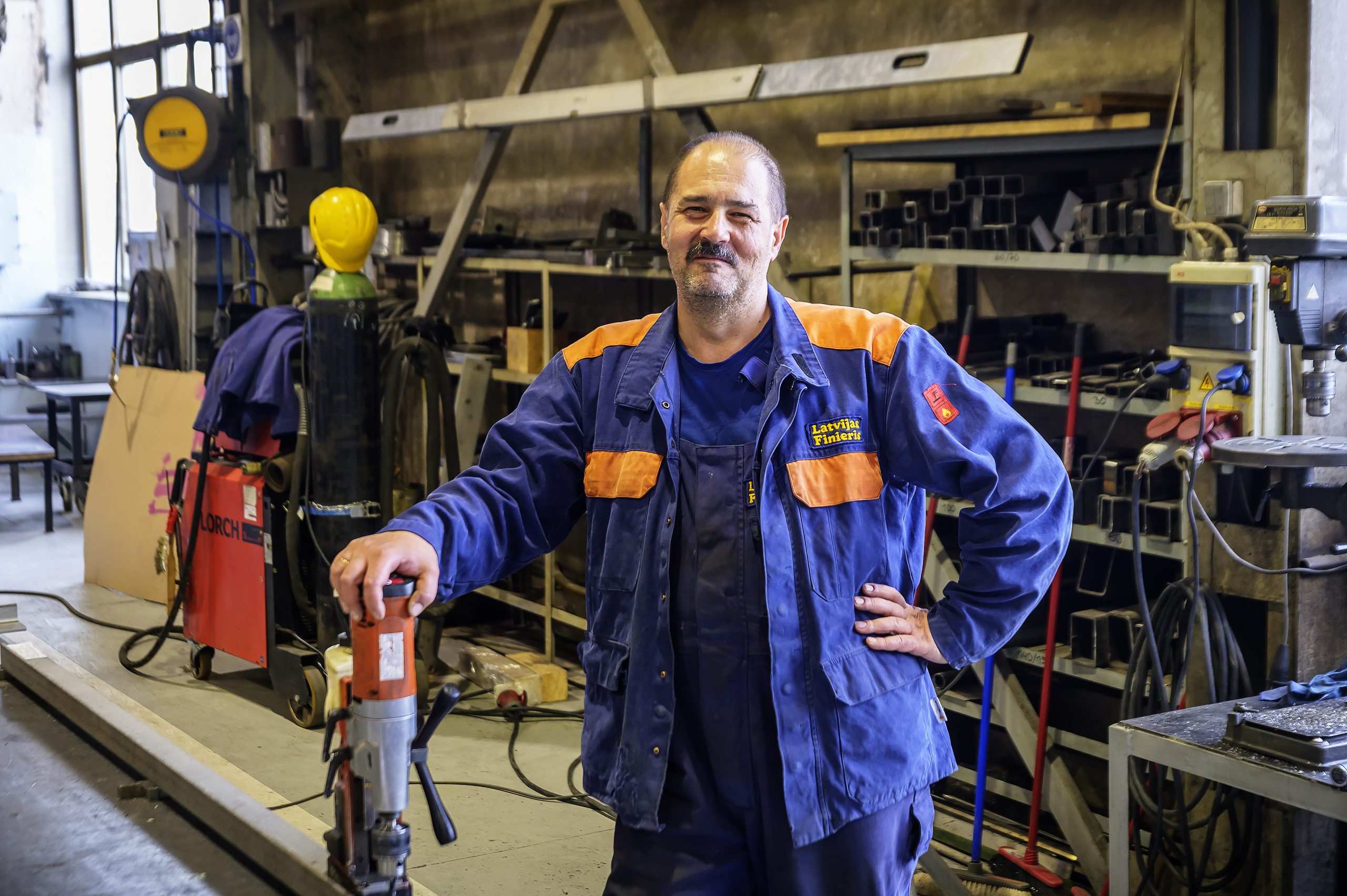Unlocking Latvia’s Growth Through Industry – Research Synergies
15.10.2025
The rapid pace of the 21st century demands that companies focus not only on today but also on the innovations and talent that will shape tomorrow. Alongside digitisation and automation, the ability to unite knowledge, experience and creativity is becoming ever more essential. Synergy between industry and research is, therefore, not a mere catchphrase, but a necessity for Latvia to evolve into a knowledge-driven economy instead of a cheap resource provider.
From Cooperation to Innovation
The wood sector has long been a cornerstone of Latvia’s industry, yet global market shifts and climate challenges now call for new approaches. Staying competitive requires the ability to create high value-added products, which is only possible in close partnership with science.
For years, Latvijas Finieris has been investing in research and innovation, working closely with Latvia University of Life Sciences and Technology, Riga Technical University, the University of Latvia, Vidzeme University of Applied Sciences, as well as the Forest and Wood Products Research and Development Institute, the Latvian State Institute of Wood Chemistry, and the Latvian State Forest Research Institute ‘Silava’. Such cooperation covers everything from sustainable forestry and resource studies to the creation of new materials and technologies.
Such partnerships bring practical benefits for both businesses and the general public. Efficiency in production is increasing, sustainable technologies are advancing, and universities are equipping future professionals to address real-world industrial problems during their studies. It is a win-win model that strengthens Latvia’s competitiveness while ensuring the continued relevance of science.
Industrial Doctorates – A Bridge Between Science and Business
A striking example of cooperation driving innovation is the industrial doctorate, a relatively new but vital tool within Latvia’s higher education system. In contrast to the classical academic approach, an industrial PhD is shaped together with industry partners, producing results that are immediately applicable in practice.
Latvijas Finieris, together with Riga Technical University, is currently supporting a project in which doctoral student Rinalds Bušs explores the use of birch bark extract, betulin, in materials science. Latvia is rich in birch forests, yet the potential of betulin remains largely untapped. In collaboration with the company’s researchers, the doctoral student is developing new compounds that make it possible to create polymer coatings with enhanced mechanical and thermal properties.
The research has already earned international recognition, highlighted by the publication of an article in Reactive and Functional Polymers at the beginning of 2025. This demonstrates that research carried out in Latvia can play a meaningful role in the global innovation landscape. This collaboration is more than a single scientific discovery – it is an investment in the future, where young researchers serve as a vital bridge between academia and industry.
Putting People at the Heart of Cooperation
It is important to remember that innovation is not only born in laboratories – it comes from people who collaborate, share experience, and cross boundaries between sectors. Industrial Doctorate programmes foster this mindset by encouraging young researchers to think broadly and companies to embrace experimentation.
The example of Rinalds Bušs highlights the value of young scientists grounding their work in the real needs of a company. He benefits from access to Latvijas Finieris’ infrastructure, raw materials and expertise, while we gain fresh ideas that can be transformed into high value-added products. The result is a win-win for everyone: the company, the university, the students, and the general public.
Building a Knowledge Economy Starts with Collaboration
In Latvia, innovation is still too often seen as distant and complex, yet in reality, it begins where open thinking meets a willingness to collaborate. The Industrial Doctorate is one of the ways to make this cooperation structured and result-oriented in the long term.
For this model to reach its full potential, it requires both government support and business initiative. The public sector must create an environment where research is viewed as an investment rather than an expense, while companies need to recognise that investing in science pays off in the long run – through new products, exportable solutions, and talented people on their teams.
Future Perspectives
Latvia’s future competitiveness will be shaped by our ability to bring together industry, education and science into a cohesive ecosystem. It is the path to an economy based on knowledge, creativity and development thinking.
Latvijas Finieris will continue along this path by strengthening ties between industry and academia, fostering new research, and supporting young scientists. Our experience shows that aligning company needs with researchers’ curiosity creates results that benefit all – businesses, scientists, and the country as a whole. Here, we would like to mention another cooperation project with the Riga Technical University Institute of Architecture and Design. Wood in Latvia is not only abundant and culturally significant, shaping our landscapes and homes, but today, it also represents the future of sustainable architecture. Through the joint development of a professional Master’s programme in architecture, we aim to promote the role of wood in architectural education. We also encourage other entrepreneurs to seek opportunities and build connections with higher education institutions. We believe that the wood renaissance has begun.
